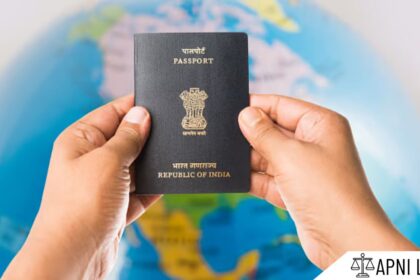Code
(1) This Act may be cited as the Code of Civil Procedure, 1908.
(2) It shall come into force on the first day of January, 1909.
(3) It extends to the whole of India except—
(b) the State of Nagaland and the tribal areas:
Provided that the State Government concerned may, by notification in the Official Gazette, extend the provisions of this Code or any of them to the whole or part of the State of Nagaland or such tribal areas, as the case may be, with such supplemental, incidental or consequential modifications as may be specified in the notification.
Explanation.—In this clause, “tribal areas” means the territories which, immediately before the 21st day of January, 1972, were included in the tribal areas of Assam as referred to in paragraph 20 of the Sixth Schedule to the Constitution.
(4) In relation to the Amindivi Islands, and the East Godavari, West Godavari and Visakhapatnam Agencies in the State of Andhra Pradesh and the Union Territory of Lakshadweep, the application of this Code shall be without prejudice to the application of any rule or regulation for the time being in force in such Islands, Agencies or such Union Territory, as the case may be, relating to the application of this Code.
Explanation of Section 1 CPC
Section 1 is foundational as it formally establishes:
1. Short Title: The official name of the law is “Code of Civil Procedure, 1908.” 2. Commencement: The Code came into effect on January 1, 1909. 3. Extent: The Code applies across India with two major exceptions:
- The State of Nagaland.
- Tribal Areas (as referred to in the Sixth Schedule to the Constitution).
However, State Governments can, by notification, apply this Code even to those excluded areas.
Clause (4) further clarifies that the application of the Code in certain special regions (like Lakshadweep and specific districts in Andhra Pradesh) does not override existing local laws in force.
Illustration
Example 1:
A civil dispute arises in Delhi. Since Delhi falls under the general jurisdiction of the CPC, the dispute will be governed by this Code.
Example 2:
A property dispute arises in a tribal area of Nagaland. CPC may not automatically apply unless the State Government has issued a specific notification extending its applicability to that area.
Example 3:
A rule exists in Lakshadweep allowing summary trial procedures for land disputes. Even though CPC applies, the local rule may still be followed if it doesn’t conflict with CPC provisions.
—
💡 Key Points
- The CPC is a procedural law that governs the process of civil litigation.
- Its application is not uniform across all territories unless extended by the concerned State Government.
- Local rules in certain regions remain applicable even if CPC is in force there.
Common Questions on Section 1 CPC
Q1: Does the CPC apply to the entire country?
A: Not by default. It applies to the whole of India except the State of Nagaland and specified tribal areas—unless extended by notification.
Q2: Can tribal areas follow CPC?
A: Yes, but only if the concerned State Government issues a notification extending its application.
Q3: What is the significance of the Sixth Schedule mentioned in the explanation?
A: The Sixth Schedule of the Indian Constitution deals with the administration of tribal areas in the North-Eastern states. It helps identify which areas are excluded from the CPC by default.
Q4: Why is there a separate provision for Lakshadweep and some areas in Andhra Pradesh?
A: These regions may have their own set of civil procedures or administrative rules. Section 1(4) ensures that the CPC does not override those local laws unless specified.
Q5: What is the difference between “may be cited as” and “shall come into force”?
A: “May be cited as” simply gives the law its short title (name), while “shall come into force” indicates the date it became enforceable.
🔗 Internal References for Further Reading (Clickable Links)
- Section 2 CPC – Definitions
- Section 9 CPC – Jurisdiction of Civil Courts
- Section 10 CPC – Stay of Suit
- Section 11 CPC – Res Judicata
- CPC Full Bare Act List
Conclusion
Section 1 CPC sets the stage for the applicability of civil procedure law in India. It provides clarity on where and how the Code applies and ensures that regional legal diversity is respected through specific exclusions and state notifications.








